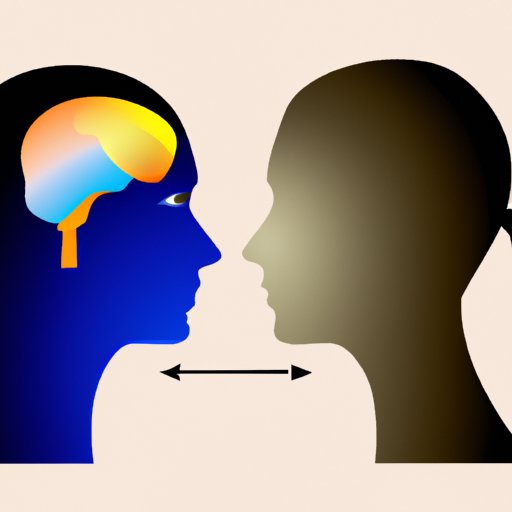Introduction
Emotional intelligence (EI) is the ability to recognize, understand, and manage our own emotions as well as those of others. It’s an important skill that can help us build strong relationships, make good decisions, and navigate difficult situations. Unfortunately, many people lack emotional intelligence and find themselves struggling to cope with everyday life.
Identify and Manage Your Emotions
The first step to developing emotional intelligence is to be aware of your own emotions. This means recognizing and labeling what you’re feeling in any given moment. This can be challenging since many of us are used to burying or suppressing our feelings. But it’s essential if we want to become emotionally intelligent.
Once you’ve identified how you’re feeling, the next step is to regulate your emotions. This means finding healthier ways to express and cope with your feelings. For example, if you’re feeling angry, you might take a few deep breaths or go for a walk. If you’re feeling anxious, you might try writing down your worries or talking to someone about them. By learning to manage your emotions in healthy ways, you’ll be better equipped to handle difficult situations.
Developing Empathy
In order to be emotionally intelligent, it’s also important to be able to understand and relate to the feelings of others. This means being able to put yourself in someone else’s shoes and accurately identify their emotions. According to a study by the University of Michigan, “Empathy is associated with greater prosocial behavior and social competence. It is also linked to greater relationship satisfaction.”
Once you’ve identified another person’s emotions, it’s important to be able to relate to them. This means showing compassion and understanding, rather than passing judgment or giving advice. This can be difficult, especially if the other person’s emotions are different from yours. However, it’s an essential part of developing emotional intelligence.
Practicing Active Listening
Another important aspect of emotional intelligence is being able to listen actively. This means being present and engaged while someone else is speaking, rather than just waiting for your turn to talk. It involves really hearing what the other person has to say and responding in a way that shows you understand and care. According to a study by the University of Minnesota, “Active listening is associated with improved communication and greater relationship satisfaction.”
Active listening also involves being open-minded and accepting of what the other person is saying, even if it’s different from your own opinion. It’s important to remember that everyone has different experiences and perspectives, and that there’s no one right answer. By being open to different ideas and opinions, you’ll be better able to understand and empathize with others.
Managing Relationships
Having emotional intelligence doesn’t just mean being able to understand and relate to other people’s emotions – it also means taking responsibility for your own actions and interactions. This means being mindful of how your words and actions affect others and taking the time to consider their feelings before you act. It also means being willing to apologize when you make a mistake and being open to constructive criticism.
It’s also important to remember that relationships are a two-way street. This means that both parties need to take responsibility for their actions and show respect for each other. By taking the time to really listen to the other person and being honest and open about your own feelings, you can foster stronger and more meaningful relationships.
Making Thoughtful Decisions
Finally, emotional intelligence involves being able to make thoughtful decisions. This means taking the time to assess a situation before reacting and considering the emotional needs of all parties involved. It also means being able to think critically and weigh the pros and cons of a situation before coming to a decision.
For example, if you’re faced with a difficult decision, you might take some time to reflect on the situation and ask yourself how each option would affect the people involved. You could also talk to someone you trust for their opinion. Taking the time to really think through a decision will help you come to a conclusion that’s not only logical but also respectful of everyone’s feelings.
Conclusion
Developing emotional intelligence is an important skill that can help us build strong relationships, make good decisions, and navigate difficult situations. The key is to be aware of your own emotions, regulate them in healthy ways, develop empathy for others, practice active listening, manage relationships, and make thoughtful decisions. With dedication and practice, anyone can become emotionally intelligent.
If you’d like to learn more about emotional intelligence, there are many resources available. Books such as Daniel Goleman’s Emotional Intelligence: Why It Can Matter More Than IQ and Salovey and Mayer’s Emotional Intelligence: Science and Myth provide a thorough exploration of the subject. There are also online courses and workshops that can help you develop your emotional intelligence.
(Note: Is this article not meeting your expectations? Do you have knowledge or insights to share? Unlock new opportunities and expand your reach by joining our authors team. Click Registration to join us and share your expertise with our readers.)
